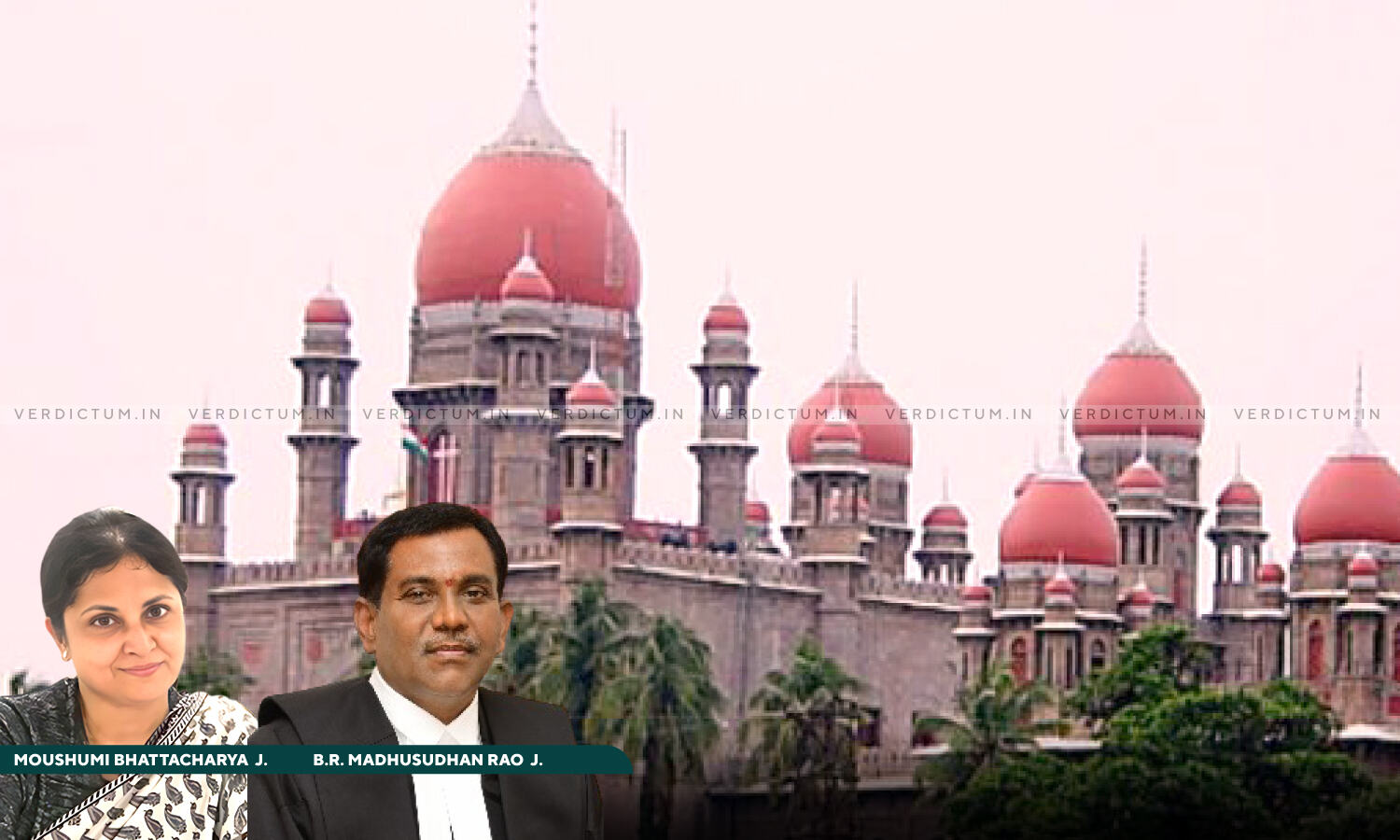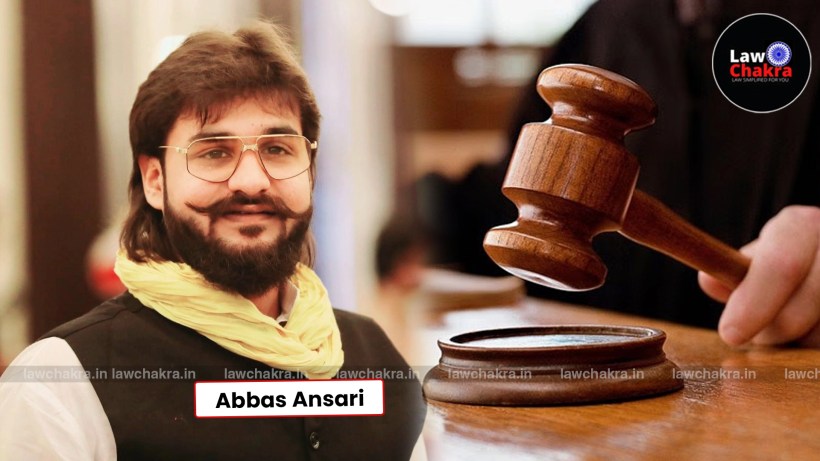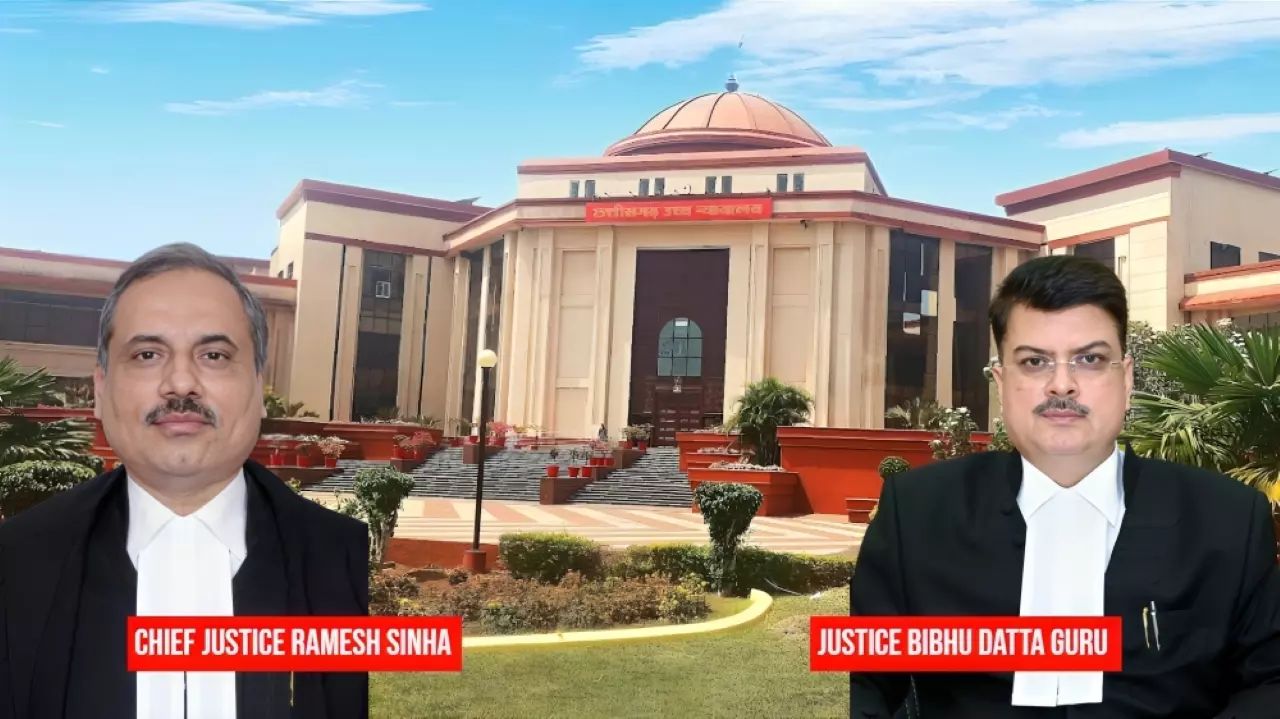Muslim Wife’s Right To Demand Khula Absolute; Only Role Of Court Is To Put Judicial Stamp On Termination Of Marriage: Telangana High Court

While dismissing a Family Court Appeal filed by a Muslim man, the Telangana High Court has held that the wife’s right to demand Khula is absolute and does not have to be predicated on a cause or acceptance of the demand by the husband. The only role of a Court of law is to put a judicial stamp on the termination of the marriage.
The Appeal arose out of an order passed by the Family Court, in a petition filed by the appellant for a declaration that the judgment passed by the respondent/Sada-E-Haq Sharai Council by which the marriage between the appellant (husband) and the respondent wife was dissolved, should be declared as null, void and not binding on the appellant.
The Division Bench of Justice Moushumi Bhattacharya and Justice B.R.Madhusudhan Rao held, “Since the wife’s right to demand Khula is absolute and does not have to be predicated on a cause or acceptance of the demand by the husband, the only role of a Court of law is to put a judicial stamp on the termination of the marriage, which then becomes binding on both parties.”
“The Family Court is simply to ascertain whether the demand of Khula is valid upon an effective attempt to reconcile the differences between the parties; or any offer by the wife to return the dower”, it added.
Senior Counsel J. Prabhakar represented the Appellant while Advocate Mubashir Hussain Ansari represented the Respondent.
Factual Background
The appellant and the respondent got married in 2012 with a dower of Rs 11,000. The respondent stayed in the marital home for about five years but made several complaints against the appellant, alleging assault and other acts of violence. Subsequently, she demanded Khula divorce from the appellant, which the appellant refused. The respondent Council sent three notices to the appellant with the demand for Khula divorce and invited the appellant to attend a reconciliation meeting. The Council issued a Khulanama (Divorce Certificate) to the respondent wife certifying the dissolution of the marriage between the appellant and the respondent.
The appellant, however, did not accept the Advisory Opinion/Fatwa/Khula nama and filed an Original Petition against the respondent Wife and the respondent Council in the Family Court at Hyderabad. The appellant prayed for a declaration that the Khulanama was null and void and without authority of law. The Family Court dismissed the said petition by the impugned order.
Reasoning
The Bench explained that the ‘Khula’ literally translates to relinquishment in Arabic. It is a mode of dissolution of marriage when the wife does not want to continue with the marital tie and can settle the matter privately by consulting a Mufti (Jurist Consult) of her School. In a Khula divorce, the wife proposes to her husband for dissolution of marriage which may or may not be accompanied by an offer on the part of the wife to give something in return. The wife may however offer to relinquish her claim to Mahr (Dower) as an option available to her but which is not a pre-requisite for a Khula divorce.
The Bench said, “The difference between a Khula divorce and a Mubaraat divorce is that the former is initiated by the wife whereas both spouses desire a separation in a Mubaraat divorce. In essence, a wife’s right to Khula is parallel to a husband’s right to Talaq and both forms of divorce are unconditional.”
Referring to various case laws on the matter, the Bench observed that the Khula is a no-fault divorce initiated by the Muslim wife. Upon a demand for Khula, the husband does not have the option to refuse the demand save and except to negotiate the return of the dower (Mehr) or a part thereof. The husband however does not have the right to refuse Khula merely because the wife declines to return the dower or a part of it. Khula is, therefore, a non-confrontational form of divorce and one which is privately settled after the parties have made an attempt to preserve the marriage.
Approaching a Mufti for a Khulanama is not compulsory and does not reinforce the Khula as the Fatwa/advisory decision given by a Mufti is not legally enforceable in a Court of law. The aggrieved party/husband may approach a Court/Qazi for adjudication on the status of the marriage consequent upon the wife seeking the Khula. The Court/Qazi is required to pronounce its view which becomes a binding judgment on the status of the marriage. The judgment/qaza pronounced by the Court is binding on the parties.
The Bench further stated that the impugned order contains a detailed exposition of the law on the subject and expresses the unequivocal view that the order passed by the respondent Council was correct. Hence, once the Family Court pronounced its decision, the appellant is required to plead and show a factual or legal error warranting interference by this Court but the appellant had not shown any such infirmity.
Thus, finding no infirmity in the impugned order, the Bench dismissed the husband’s appeal.
Cause Title: A v. B (Case No.: FCA.No.75 Of 2024)
Appearance
Petitioner: Senior Counsel J. Prabhakar, Advocate Mohd. Shafiuddin
Respondent: Advocates Mubashir Hussain Ansari, Imtiaz Gulam Mahboob Faiz MD





